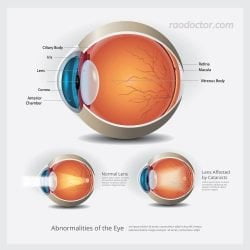What your eyes reveal about your age

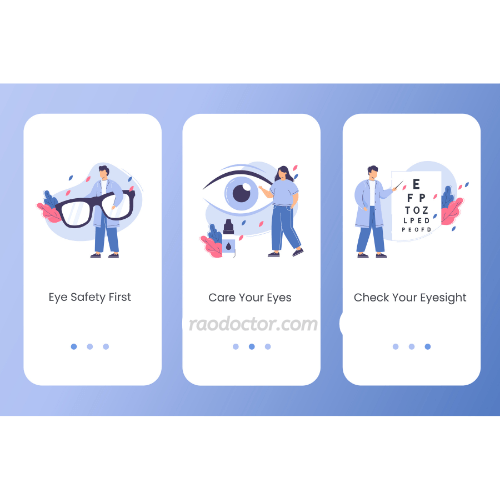
Would you rather listen to the article first?
Then click this link- Eyes and your age or click the button below-
Did you know that your eyes can reveal a lot about your age? If you are one of those who think that the eyes are the window to the soul, then you will be surprised to know that even your eyes have secrets. Here I would like to add one more thing- a world without eyes is a world without life! Here I would advise taking care of your eyes from a young age so that the problems of age-related eyes changes are slowed down.
We are all living in an era where books are gradually being replaced by electronic gadgets like computers, tablets and mobile phones. There was always a change in the structure of our eyeballs as we age, but with the advent of these gadgets and constantly staring into the screens, it is making this change occur faster. For example, our children are getting glasses to read or look far at an early age.
The condition and appearance of your eyes can tell a lot about how old you are. Let’s take a look at some eye problems that might develop if you are getting older.
Before we dig into all the eye problems, let’s have a look at how the eyes look in this short video-
Before we proceed, let’s have another good look at what parts our eyeball is made up of; because as we learn about the changes in eyes in old age, we need to know which are the parts that are most likely to get affected-
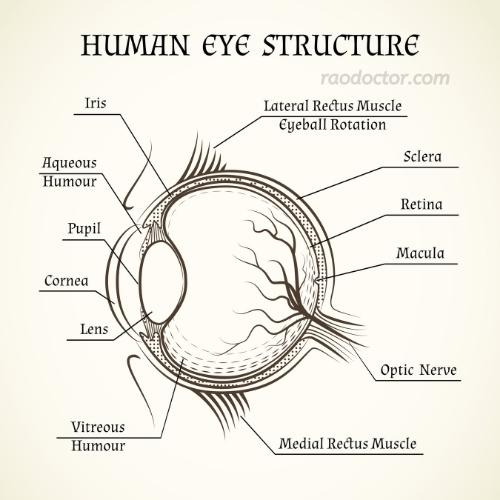
Dry Eye Syndrome
Dry eye syndrome can be a condition that will develop as you grow older. It is a very common condition that often goes undiagnosed because many people don’t even realize they have it.
Dry eye syndrome occurs when there is a lack of tears to keep your eyes hydrated. Tears are created by an organ called the lacrimal gland which is located in the eyelid. The gland has to create a constant supply of tears to keep the eyes hydrated.
As we age, especially after the age of 35, the lacrimal gland can become less efficient, resulting in a decrease in the creation of tears. This is accelerated further by staring continuously into our computers and mobile phones. This can cause the eye to become dry and irritated. In some cases, the eye may even become itchy.
Dry eye syndrome can cause blurry vision, difficulty reading and headaches. The symptoms of dry eye syndrome are not serious but it’s important to seek treatment from your eye doctor.
Action to take-
Visit your ophthalmologist or your family physician. He or she may prescribe eyedrops like Refresh Tears, Systane Ultra or Maxmoist. They act as artificial tears and keep your eyes hydrated. These medications need a prescription from your physician/ophthalmologist.
There are also a variety of ayurvedic/homepathic eyedrops available in India. You can try them out if you have strained eyes. They are quite safe to use.
Useful resource- Eyecare
Presbyopia

When you are younger, you’re able to see objects close up and far away without any issue. However, as you get older, your eyes develop a condition called presbyopia. This condition is again hastened by using electronic gadgets as mentioned above.
Presbyopia is a natural condition that happens as we grow older. It is caused by the fact that the flexibility of the lens in the eye gets stiffer as we age. As we grow older, the lens in our eyes becomes hard and less elastic and so does the ability to focus on near objects.
When you have presbyopia, you have a tough time seeing objects that are close, like the words on a book or a computer screen.
You might find yourself holding things further from your face or using a magnifying glass to be able to see. There are a few options for people who suffer from presbyopia. You can try wearing reading glasses, investing in a computer monitor that is larger, or getting LASIK surgery.
Useful resource- 1. Presbyopia 2. Wikipedia
Macular Degeneration

One of the most common eye diseases, macular degeneration, is one of the leading causes of blindness among the elderly. In macular degeneration, the retina gets damaged, resulting in a loss of vision.
The retina is the innermost part of the eye in which image formation takes place. In daylight, the image of an object passes through the cornea and aqueous humor [fluid in between cornea and the lens], then the lens, vitreous humor and then falls on the retina. Have a look at the first picture in this article to know the parts of the eyes.
The retina then conveys this sensation of vision to the brain through the optic nerve to the brain. The brain then analyses that sensation, and the ultimate result is the vision you get.
Retina is what allows you to see in the dark and have good vision in general. It is the most sensitive part of the eye and is responsible for processing images and transmitting them to the brain.
When the retina is damaged, you may experience blurry vision, a loss of color perception, hazy vision and even a blind spot in your field of vision. There is no way to prevent macular degeneration, but you can get treatment to slow down the progression of the disease.
There are drugs that can be used to improve the health of the retina. There are also supplements that can be taken to reduce the risk of macular degeneration. If you are concerned about macular degeneration, you should see an eye doctor for regular check-ups.
Action to take-
Visit your ophthalmologist. He/she may suggest eyedrops or laser treatment.
Useful resource- Watch this video-
Glaucoma
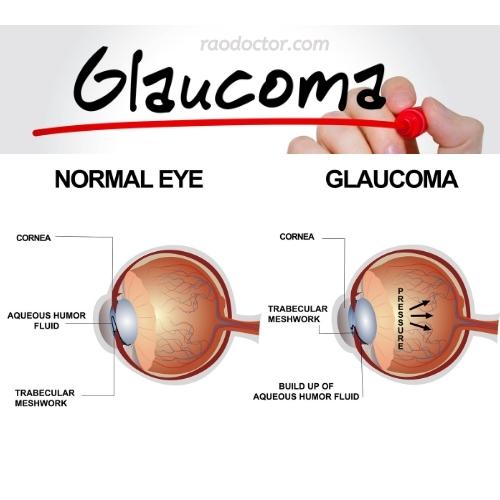
Glaucoma is another eye disease that may develop as you get older. It is caused by increase in the pressure inside the eyes, somewhat similar to blood pressure.
The disease damages the optic nerve, which can result in vision loss. People who have glaucoma usually do not notice any symptoms until the disease has progressed. The key is to get regular check-ups with your eye doctor to make sure you are not developing glaucoma.
Anyone can get glaucoma, but it is most common in people who are over the age of 60. If you have been diagnosed with glaucoma, there are treatments available.
Some of the more common treatments include eye drops and medications. There are surgical options available as well. However, it is important to get treatment as soon as possible to avoid further damage to the optic nerve.
Action to take-
Your ophthalmologist may prescribe you these medications-
The eyedrops mentioned above are prescription medications that can be bought online by clicking on the links above and uploading a valid prescription.
More on glaucoma in my upcoming article.
Cataract of Eyes

A common eye condition that often develops with age, cataract is a clouding of the lens inside the eye. The lens is what allows us to focus on things close up and far away.
As we get older, the lens can become stiff and cloudy, making it harder to see. There are two types of cataracts, a congenital cataract, which is present at birth, and a senile cataract, which can develop as early as the 30s or 40s. There is no way to prevent a cataract from forming.
However, it is important to visit your eye doctor for regular check-ups so that a cataract can be diagnosed and treated as early as possible. A cataract can be removed with surgery, but it is important to catch it before it becomes a problem. A cataract will not hurt you, but it can make it hard to see.
Action to take-
Your physician/ ophthalmologist may advise you cataract operation with IOL (intraocular lens). Go ahead with it for good vision. L
More on cataract in my upcoming article.
Retinopathy
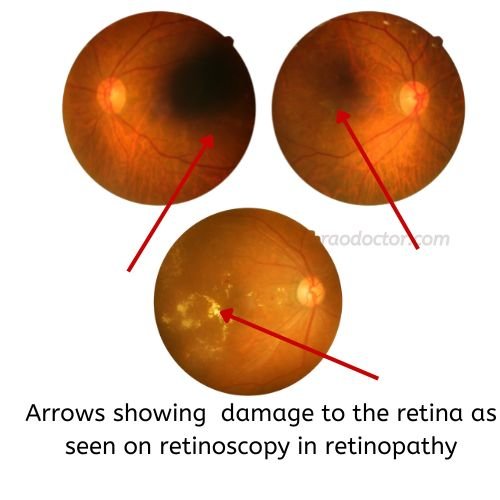
Retinopathy is an eye disease that can occur when there is a break in the retinal blood vessels. There are a few different types of retinopathy, but diabetic retinopathy is the most common.
If you have diabetes and you get regular check-ups with your eye doctor, you can catch retinopathy early and take care of it with treatment. Retinopathy is not something that needs treatment immediately.
However, it is important to find out if you have retinopathy so that you can have your eyes examined by an eye doctor on a regular basis. Just because you have retinopathy does not mean you will lose your vision. Retinopathy will gradually worsen over time, but you can take steps to slow down the progression of the disease. You should see your eye doctor for regular check-ups so that the progression of the disease can be monitored. You can read all about diabetic retinopathy in the article below-
Dark Circles Under Your Eyes
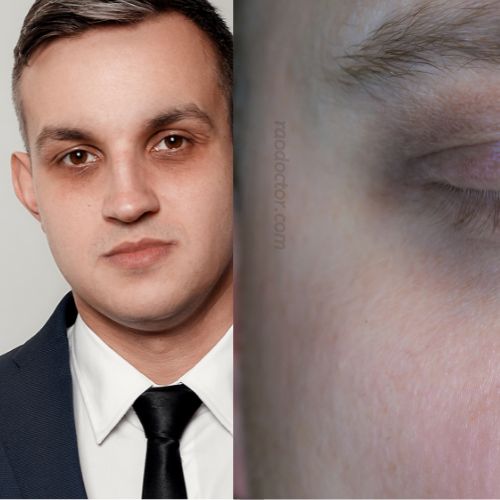
Age is not the only thing that can lead to dark circles under your eyes. In some cases, a health condition or even lack of sleep can cause dark circles under your eyes. As you get older, your skin will become less elastic and begin to sag.
This can cause the blood vessels under your eyes to become more prominent, which can make dark circles under the eyes more noticeable. If you have dark circles that have been bothering you for a while, there are a few things you can do to try and remove them.
Some people find that drinking more water can help with dark circles because it can hydrate the skin. You can also try applying an eye cream that contains hyaluronic acid and vitamin C ( click this link to get it).
I have suggested the above cream for many of my patients.
Conclusion
Now that you have read and understood the changes that take place in your eyes as you age, it’s time for you to take action. And that is- start taking care of your eyes from this instant.
Your eyes can reveal a lot about your age, from the health of your eyes to the amount of sleep you are getting. If you notice any of the eye problems above, make sure to see your eye doctor regularly so that they can be diagnosed and treated accordingly.
There are many ways to slow down the aging process, but there are also some things that you cannot control. Age-related eye problems are something that everyone gets, regardless of how well they take care of their eyes. However, there are steps you can take to slow down the process.
My next article
My next article will be on Bone Health as we age and how to manage it. Make sure you get to read it by joining my email list by filling the subscription form.
Disclosure
Some of my articles may contain affiliate links; this means each time you make a purchase, I get a small commission. However, the input I produce is reliable; I always handpick and review all information before publishing it on my website. I can ensure you will always get genuine as well as valuable knowledge and resources.
Share this article
If you feel this article was useful, do consider sharing it on Twitter by clicking the quote below-
7 Problems of Eyes You Develop As You Age Share on XAdios.

